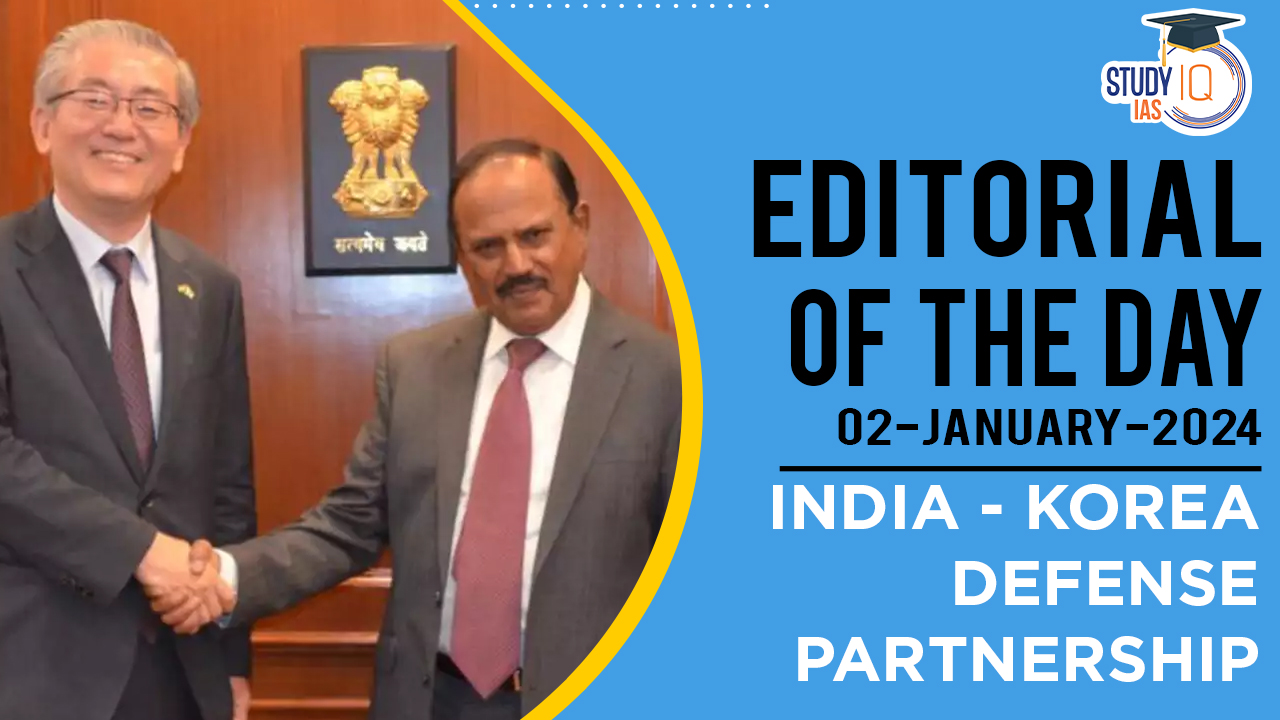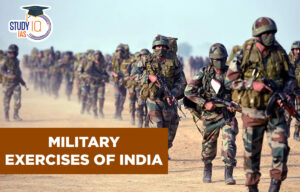Table of Contents
Context: The visit of Chief of the Army Staff of India to the Republic of Korea, signifies a critical juncture in the trajectory of India-Korea defence relations.
Challenges In The India-Korea Defence Partnership
- Lack of a Unified Defense Framework: There is no comprehensive, shared vision for a defence framework between India and Korea. Establishing a robust structure for policy alignment and cooperation is essential.
- Korea’s Perception of India’s Role: Korean governmental views need updating regarding India’s strategic position. Moving past Cold War-era perceptions, Korea must recognize India as a significant regional power contributing to Indo-Pacific stability.
- India’s Focus on Arms Acquisition: The Indian government’s emphasis on weapons procurement and technology transfer from Korea, while important, tends to overshadow broader strategic issues.
- Korea’s Profit-Driven Approach: The Korean defence sector’s focus on arms sales to India, lacking strategic depth, may not be sustainable given the rapidly changing geopolitical landscape.
- Influence of Arms Lobbies: In both countries, powerful defence lobbies emphasise immediate gains, potentially hindering the pursuit of long-term strategic objectives.
- New Geopolitical Coalition Threats: The emerging alliance of North Korea, China, and Russia presents new challenges for India-Korea defence cooperation, requiring careful strategic evaluation.
We’re now on WhatsApp. Click to Join
Way Forward for India-Korea Defence Partnership
- Reevaluating India’s Strategic Importance: Korea should broaden its perception of India, recognizing its status beyond just a major consumer of defence products, and work towards a deeper, more comprehensive partnership.
- Joint Development in Defence Technology: Collaborating on advanced defence systems and technology could be mutually advantageous, fostering innovation and self-sufficiency in defence sectors of both nations.
- Overcoming Influence of Defence Lobbies: It’s crucial for both India and Korea to focus on long-term strategic objectives, rather than short-term benefits influenced by powerful arms lobbies.
- Cybersecurity and Space Warfare Collaboration: Opportunities exist for joint efforts in protecting critical infrastructure and information against threats in space warfare, information warfare, and cybersecurity.
- Maritime Security and Anti-Terrorism Measures: Collaborative actions in maritime security, such as joint patrolling and sharing intelligence, are vital, especially given both nations’ interests in the Indian Ocean.
- Contribution to Peacekeeping: Sharing resources and expertise in peacekeeping operations can bolster regional and global stability, showcasing their commitment to global peace and security.
- Enhanced Joint Military Exercises: Conducting joint army exercises can improve interoperability and strengthen both militaries’ capabilities in diverse scenarios.
- Humanitarian Assistance and Disaster Relief (HADR): Joint exercises and the exchange of best practices in HADR highlight the shared responsibility of India and Korea in responding to natural disasters and humanitarian crises.


 National Maritime Day 2025, Theme, Histo...
National Maritime Day 2025, Theme, Histo...
 International Day for Mine Awareness and...
International Day for Mine Awareness and...
 List of Military Exercises of India 2024...
List of Military Exercises of India 2024...





















